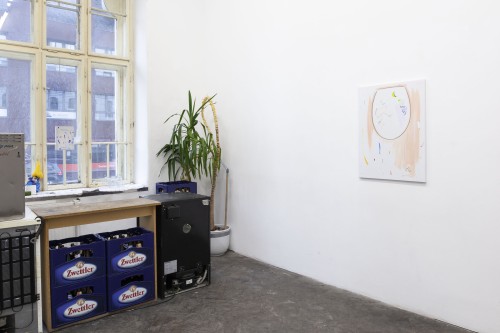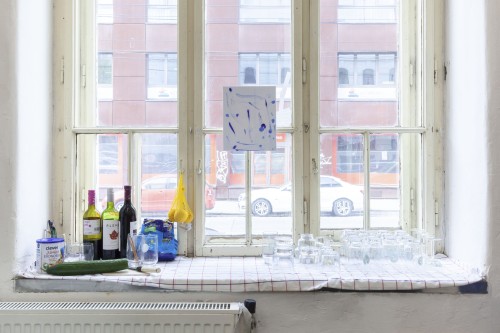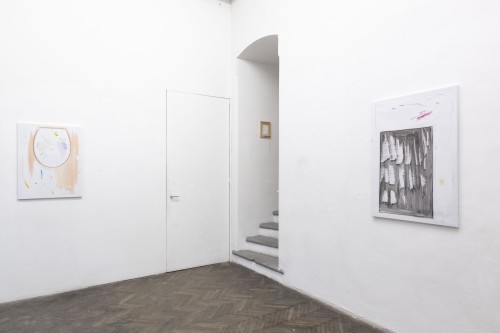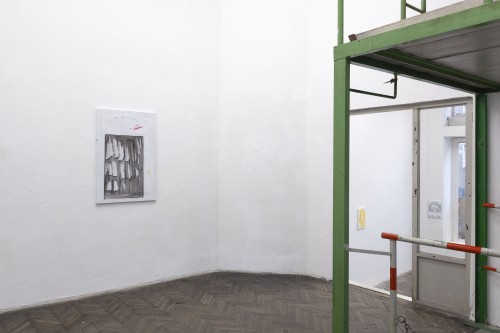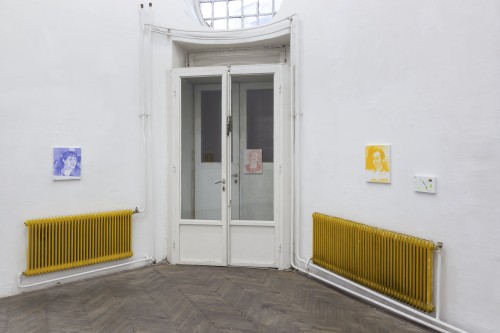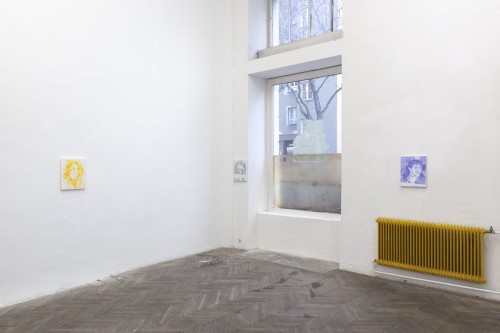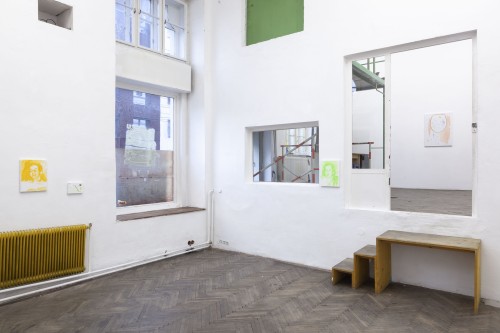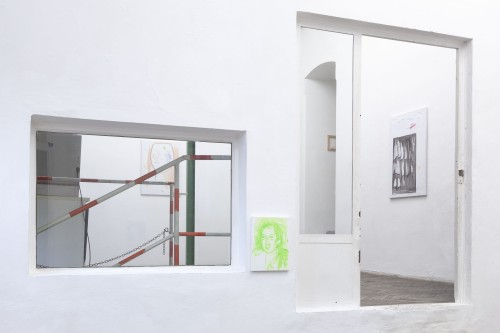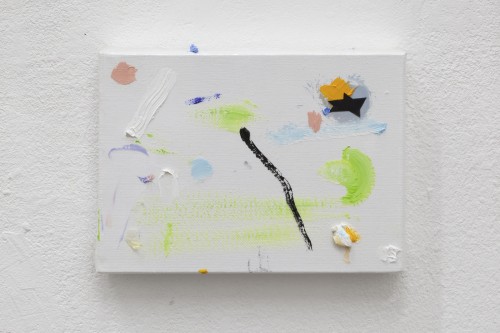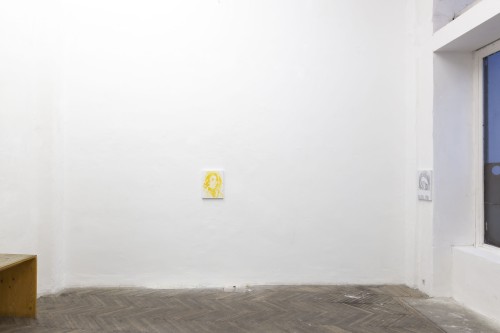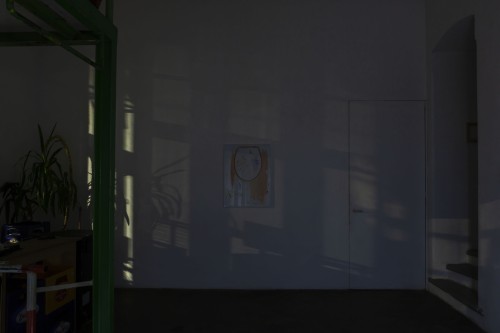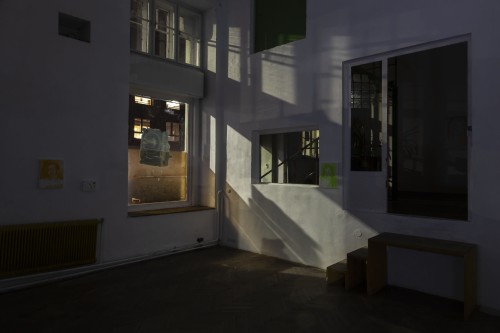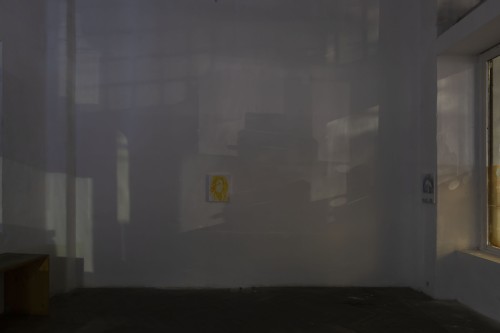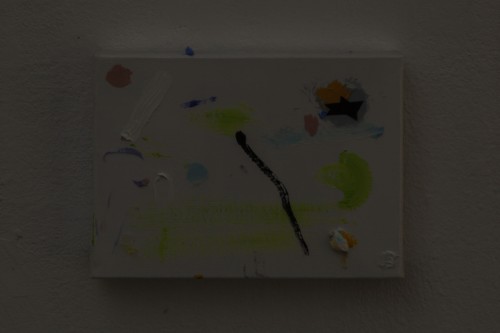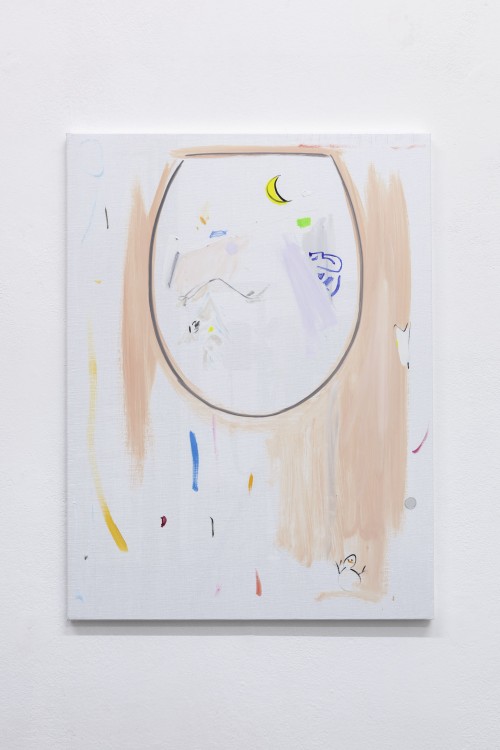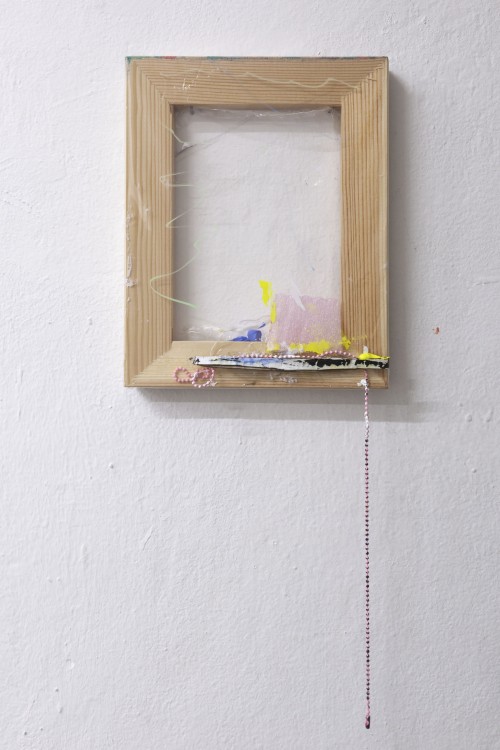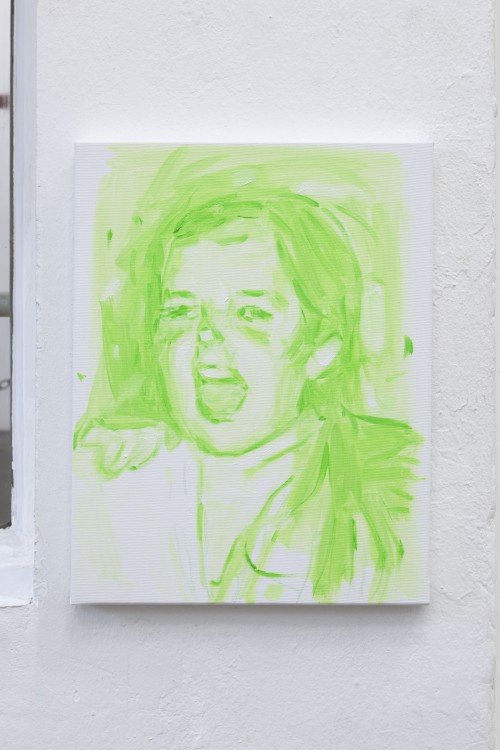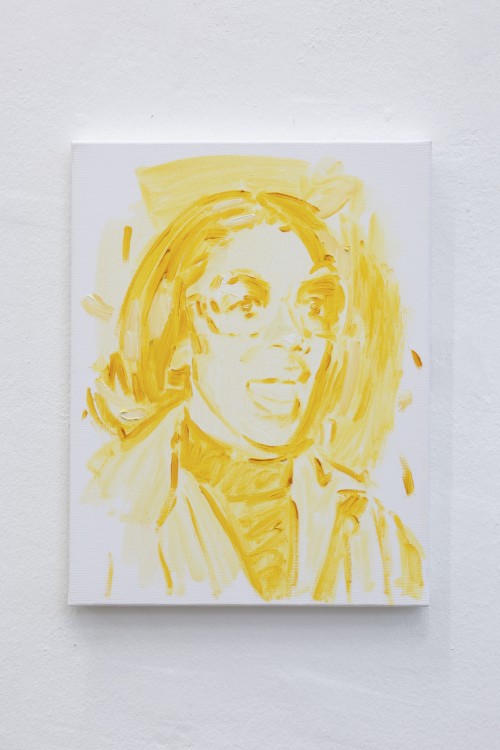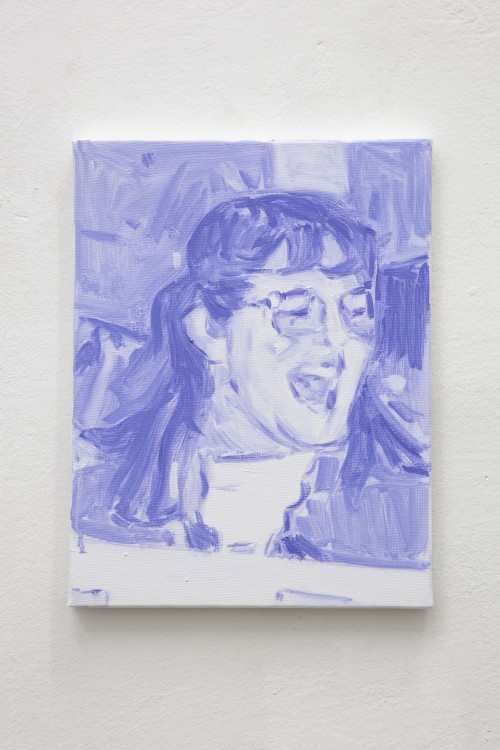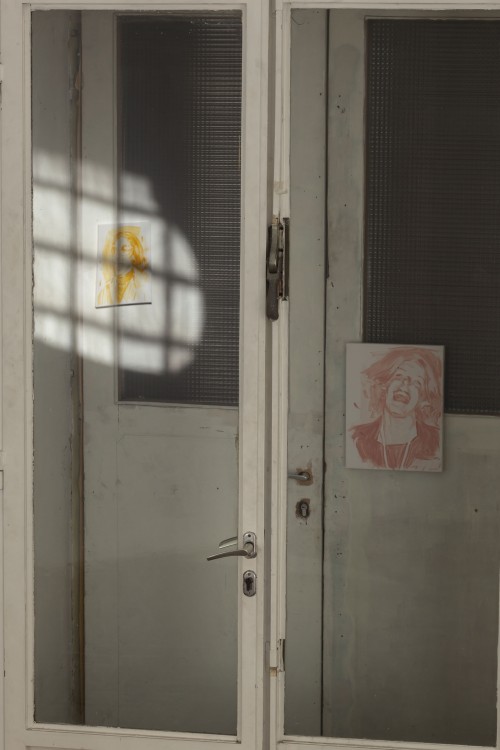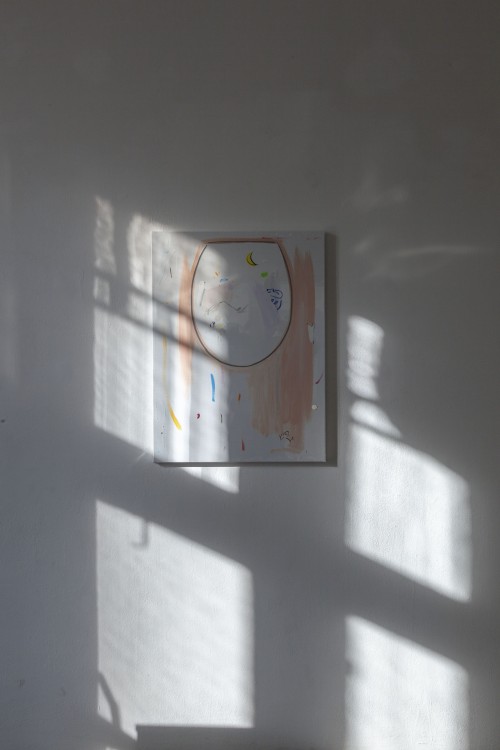«Take and Retake (Back the Night)».
15.03. — 29.03.2024
Opening: 15.03.2024, 19-23h
Finissage: 29.03.2024, 19-23h
Opening hours: Thursdays during the exhibition, 14-18h
margarcialbert.com
When an artist goes to buy canvases, whether from a Fine Arts megastore or a dime store – a situation that
applies to all those sourcing their resources from within networks of mass distribution – they will find such
materials wrapped in the cheapest and most widespread type of plastic: PET. The artist’s routine gesture is
then to tear off this plastic film and to throw it in the garbage. This plastic will then end up in a landfill,
where it will be burned, releasing microplastics that will fly away, possibly coming to lodge themselves in
our lungs. Or perhaps it will end up in a garbage heap that, while not incinerated, will land in the ocean and
choke a fish or a turtle – who knows? We are sufficiently aware of such environmental disasters to the point
that we recycle our trash, and yet we – for the most of us – nevertheless contribute to them, in our own
ways and through our own daily gestures that have become so automatic that they escape our attention. Mar
García Albert averts the disasters of PET plastics by painting directly onto wrapped canvases.
In both its motives and its implications, this gesture is a complex one.
It’s a gesture by which the artist assumes her role in a global, industrial system of the production and
distribution of goods, and in so doing, acknowledges her own responsibility for the long-term consequences
of such a system. The work bears material witness to the conditions of its own production – a critical
approach that places it within the modernist tradition.
This is an antiromantic gesture as well. The plastic film creates a barrier between the painting and the
canvas, thus cancelling - both physically and symbolically - the romantic notion of materially inscribing
the traces of artistic subjectivity directly onto the canvas. The canvas is never painted. It can’t even be
repainted but remains forever available to be painted for the first time.
As a result, the task of conservation becomes more complex than if the paint had been applied to the canvas.
How will oil paint age on such a surface? How does PET age? What is to be done if the plastic breaks?
Unprecedented conservation solutions will have to be found. The artist stages an encounter between
museum conservation and conservation of the environment. By forcing museums to consider the data of
our mass production era, and thus challenging their standards of conservation, she carries out an act of
responsibility toward the planet by not simply discarding PET, but transferring it to the space of art, which
is a space of infinite conversation.
Text: Vincent Simon
